16 fascinating pictures showing life in 1918, from the Country Life Picture Library
Our archive manager Melanie Bryan picks out some extraordinary images that show what Britain was like 100 years ago, with life going on despite the war raging in France and Belgium.
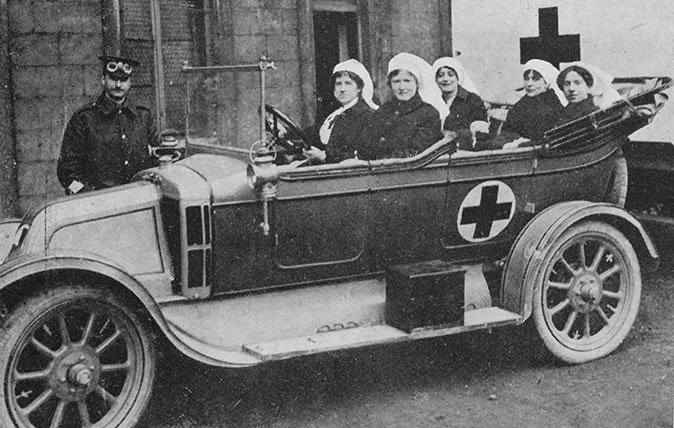

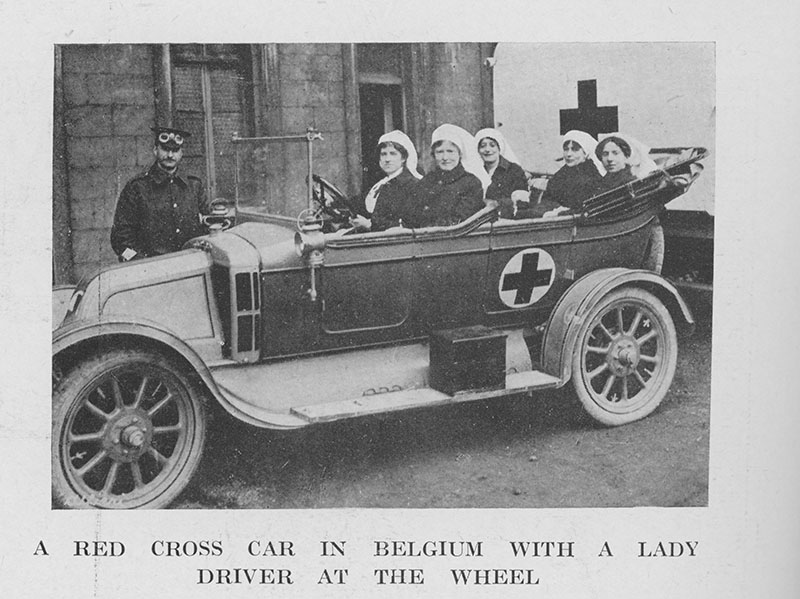
As women filled all manner of roles in society that would have been hard to believe before 1914, attitudes changed – and quickly. Women were first granted the right to vote in February 1918, albeit with age and property restrictions at first. Equal suffrage for men and women would not come until 1928.
- - - -
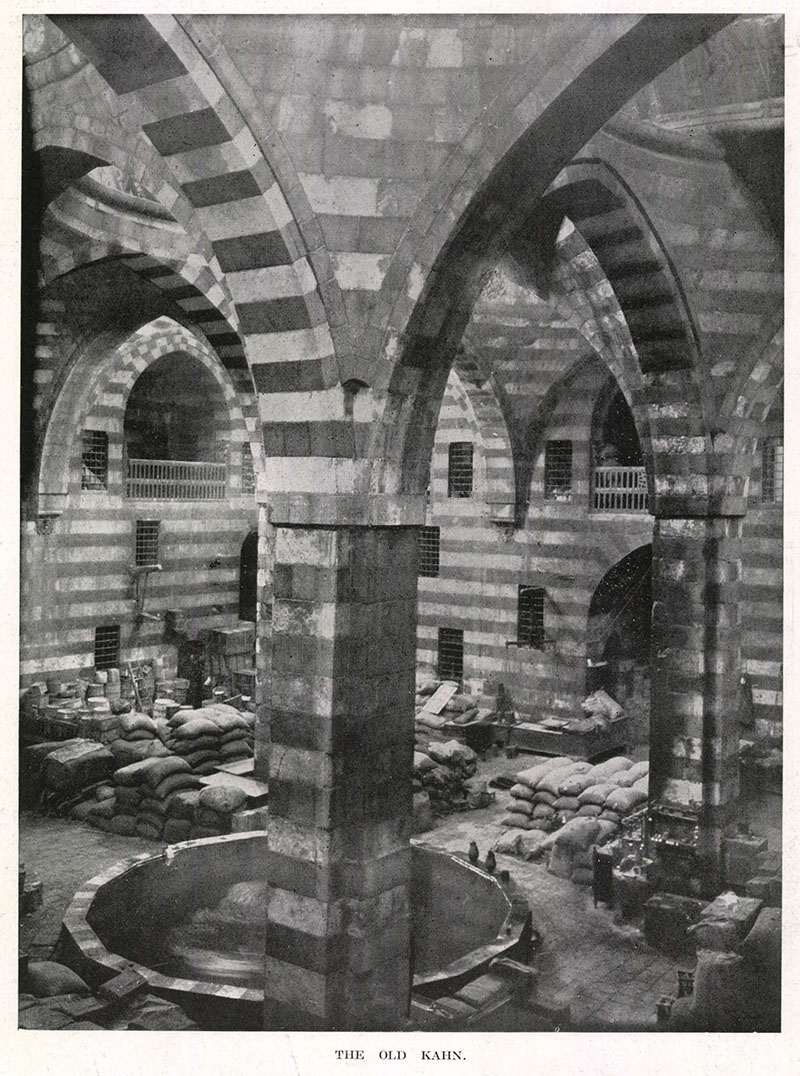
The Old Khan in the Syrian captial of Damascus, used for storage during the war.
- - - -
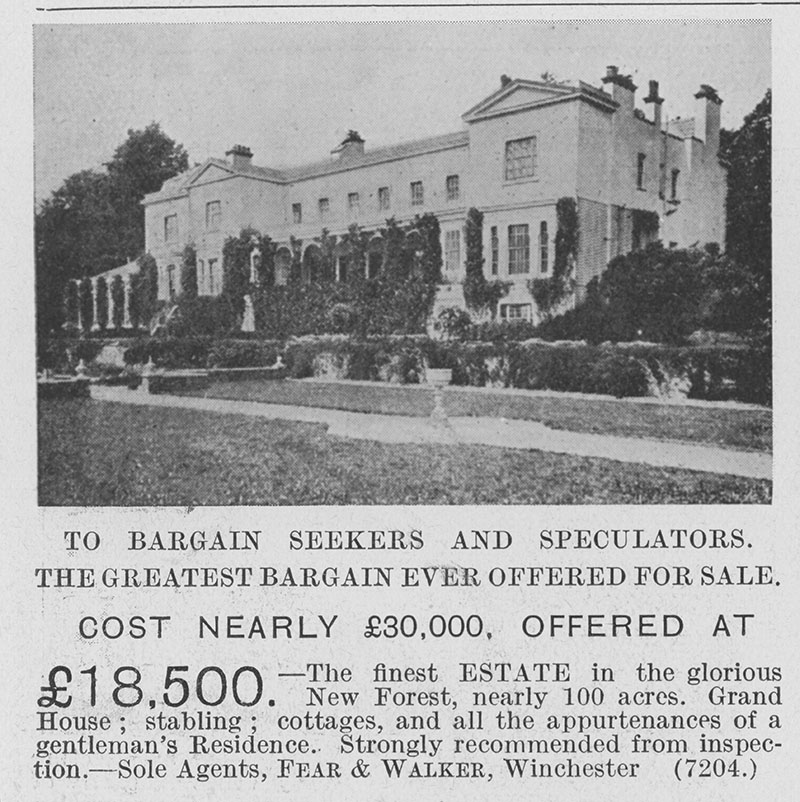
If you think that the price looks low, you're right – even for the era. A combination of death and hefty death duties saw many country houses and estates come to the market during the war at knock-down prices. £18,500 in 1918 is equivalent to around £950,000 in today's money.
- - - -

German prisoners of war didn't just sit in camps – here are some pictured helping to bring in the harvest in the summer of 1918.
- - - -

Observation balloons being made for the Western Front at the Sidney Davidson Factory in London, which opened in April 1918. After the war it was sold to the Kiwi boot polish company.
- - - -
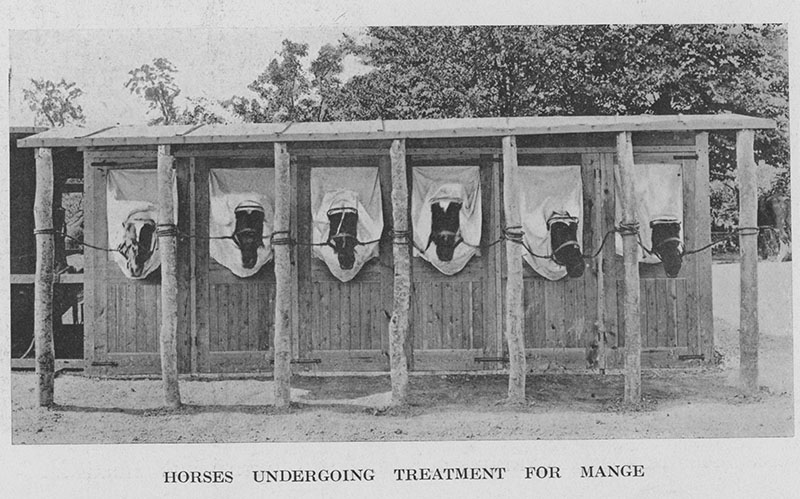
Millions of horses helped the war effort, and keeping them healthy was an important task.
- - - -
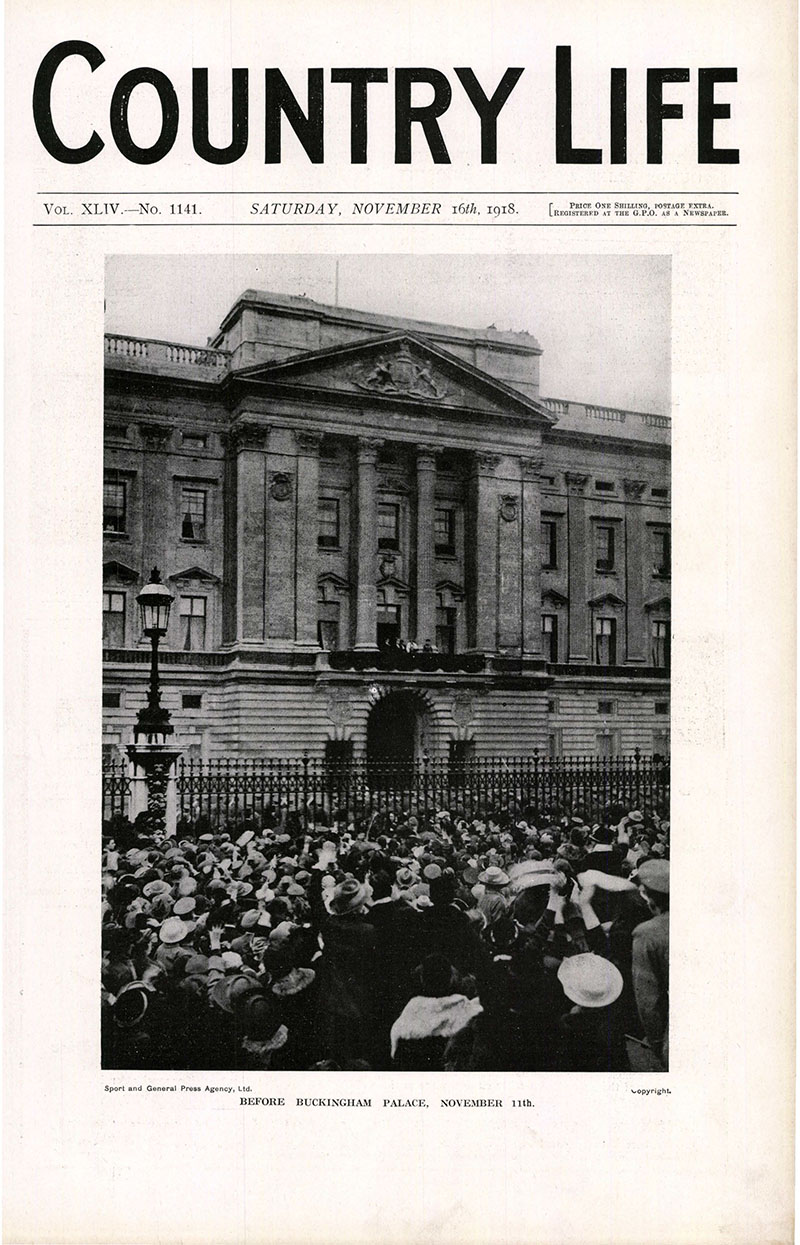
The signing of the Armistice was celebrated by crowds gathering at Buckingham Palace, and recorded in Country Life a few days later.
- - - -
Sign up for the Country Life Newsletter
Exquisite houses, the beauty of Nature, and how to get the most from your life, straight to your inbox.
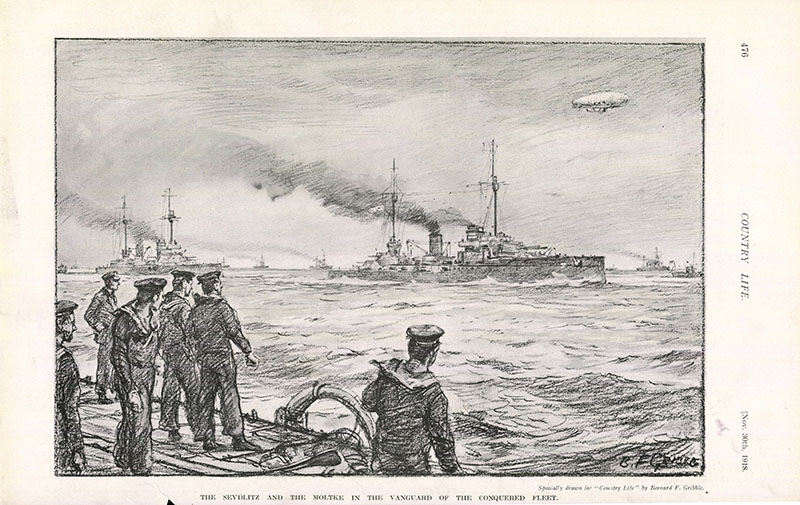
The Armistice was signed on November 11, 1918, but it was 10 days later that the Royal Navy earned it's greatest victory. The surrender of the German fleet – in which the entire German Imperial Navy was handed to the British without a shot being fired – was recorded in this specially-commissioned picture by B. F. Gribble for Country Life.
- - - -
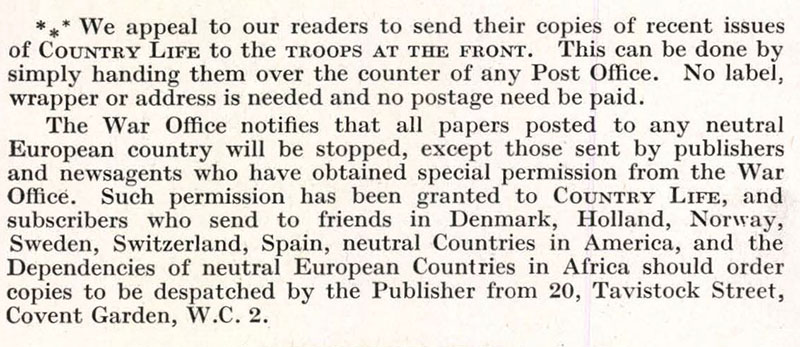
Country Life did its it bet to help raise morale in the First World War, thanks to a scheme which allowed people to post their copies free of charge to the men on the front.
- - - -
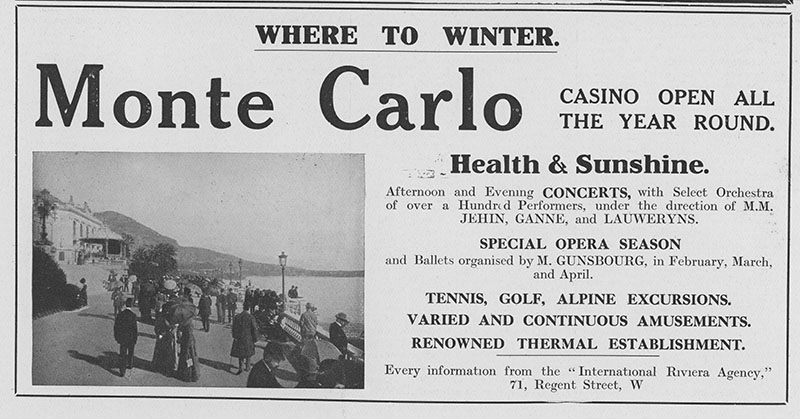
Country Life wasn't alone in carrying on as normal throughout the war. It seems hard to believe now, but normal life continued in all sorts of ways despite the war raging – even including holidays for those who wished to winter on the Mediterranean, as evidenced by this January 1918 advert.
- - - -
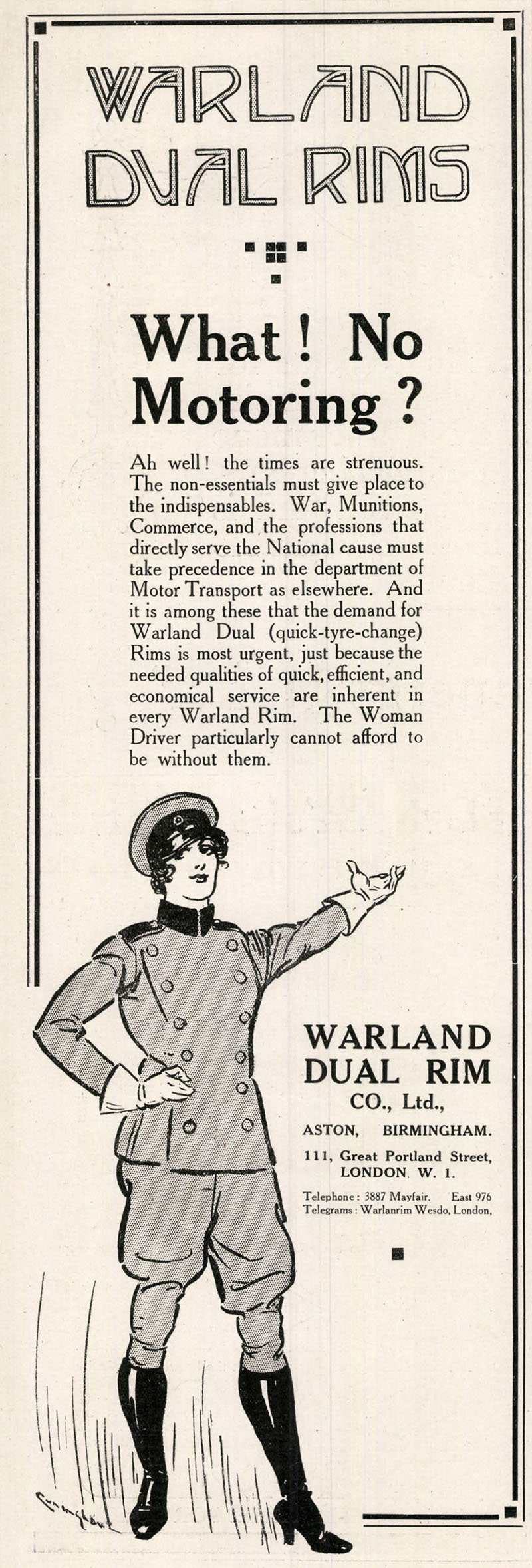
Life continued as normal not just for well-heeled holidaymakers but also for drivers across Britain.
- - - -
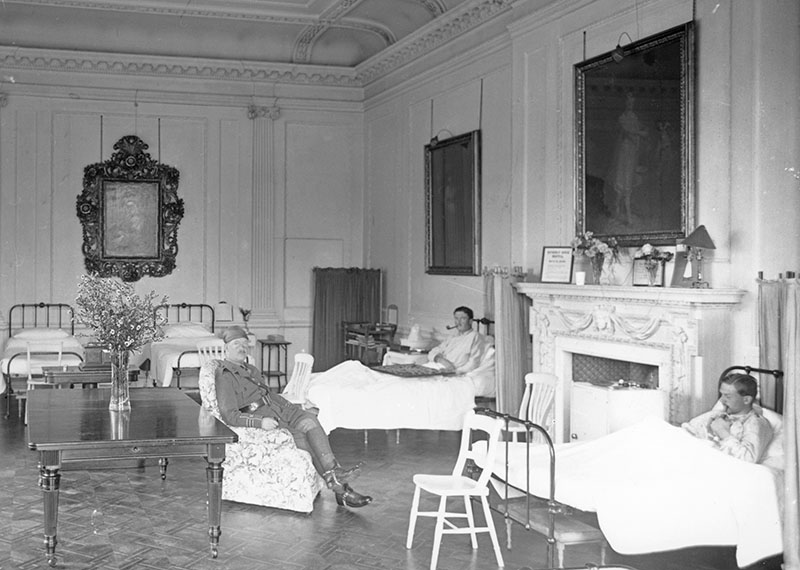
Bathurst House Auxiliary Hospital in Belgrave Square hosted recovering soldiers – it's hard to imagine what arriving in such a place must have been like for men who had spent years in the trenches.
- - - -
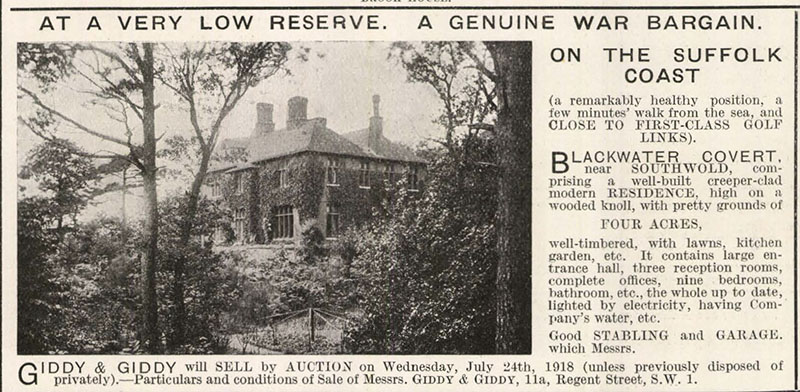
This beautiful place was another wartime property bargain. Today, it's a nursing home.
- - - -
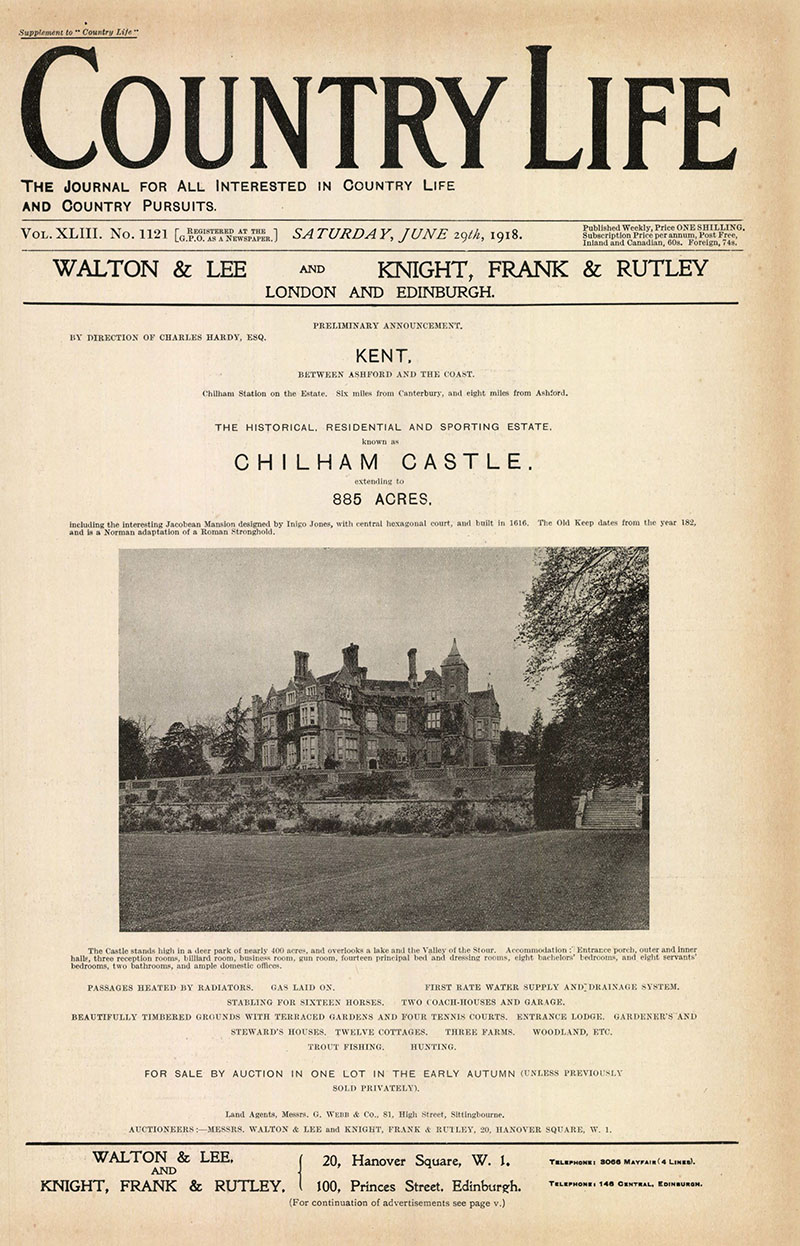
Unlike Blackwater Covert (above), Chilham Castle remains a private home – today, it's owned by millionaire financier-turned right-wing activist (and Brexit backer) Stuart Wheeler.
- - - -
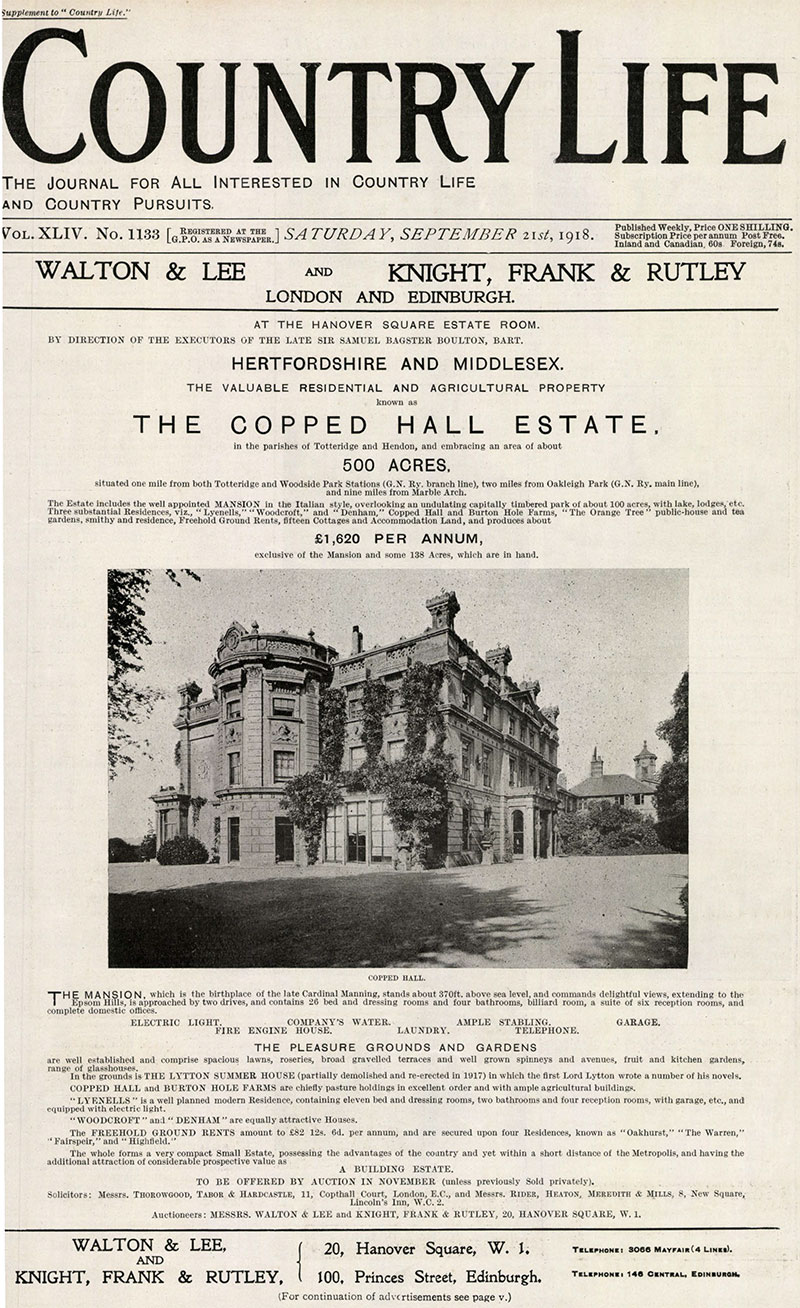
Copped Hall had been featured in Country Life in 1910, and despite being put on the market in 1918 it's believed to have remained in the Wythe Family for a further 30 years. The house fell into disrepair in the 1950s, but was restored following a huge effort that began in the 1990s. The Hall itself is just one of many beautiful homes within the property – singer Rod Stewart lived in a mansion on the estate for 30 years before selling up in 2016.
- - - -
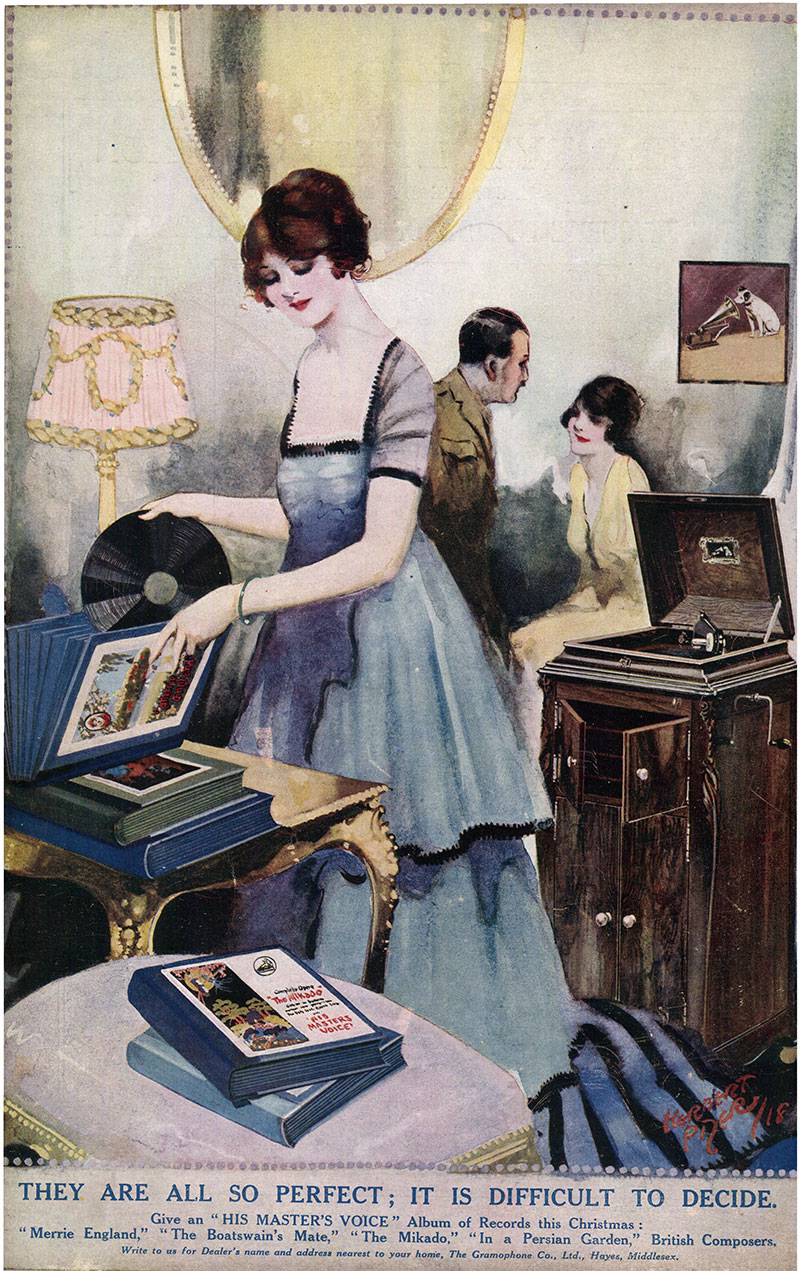
And finally, with the war over, what better to do than put some music on and throw a party to celebrate? HMV splashed out on a full-colour advertisement in Country Life to help prompt people to do just that.
Country Life is unlike any other magazine: the only glossy weekly on the newsstand and the only magazine that has been guest-edited by HRH The King not once, but twice. It is a celebration of modern rural life and all its diverse joys and pleasures — that was first published in Queen Victoria's Diamond Jubilee year. Our eclectic mixture of witty and informative content — from the most up-to-date property news and commentary and a coveted glimpse inside some of the UK's best houses and gardens, to gardening, the arts and interior design, written by experts in their field — still cannot be found in print or online, anywhere else.
-
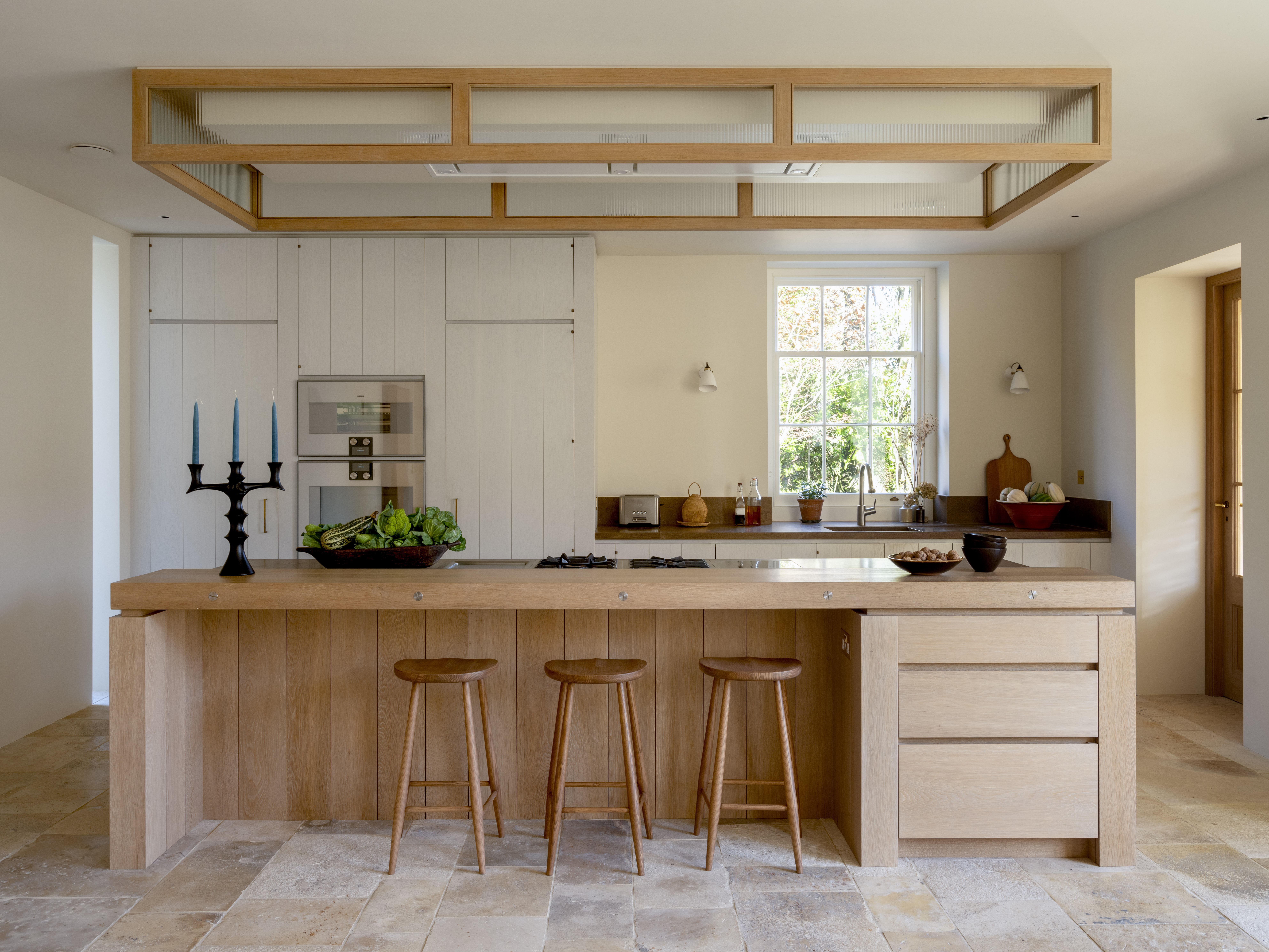 Designer's Room: A solid oak French kitchen that's been cleverly engineered to last
Designer's Room: A solid oak French kitchen that's been cleverly engineered to lastKitchen and joinery specialist Artichoke had several clever tricks to deal with the fact that natural wood expands and contracts.
By Amelia Thorpe
-
 Chocolate eggs, bunnies and the Resurrection: Country Life Quiz of the Day, April 18, 2025
Chocolate eggs, bunnies and the Resurrection: Country Life Quiz of the Day, April 18, 2025Friday's quiz is an Easter special.
By James Fisher
-
 Chocolate eggs, bunnies and the Resurrection: Country Life Quiz of the Day, April 18, 2025
Chocolate eggs, bunnies and the Resurrection: Country Life Quiz of the Day, April 18, 2025Friday's quiz is an Easter special.
By James Fisher
-
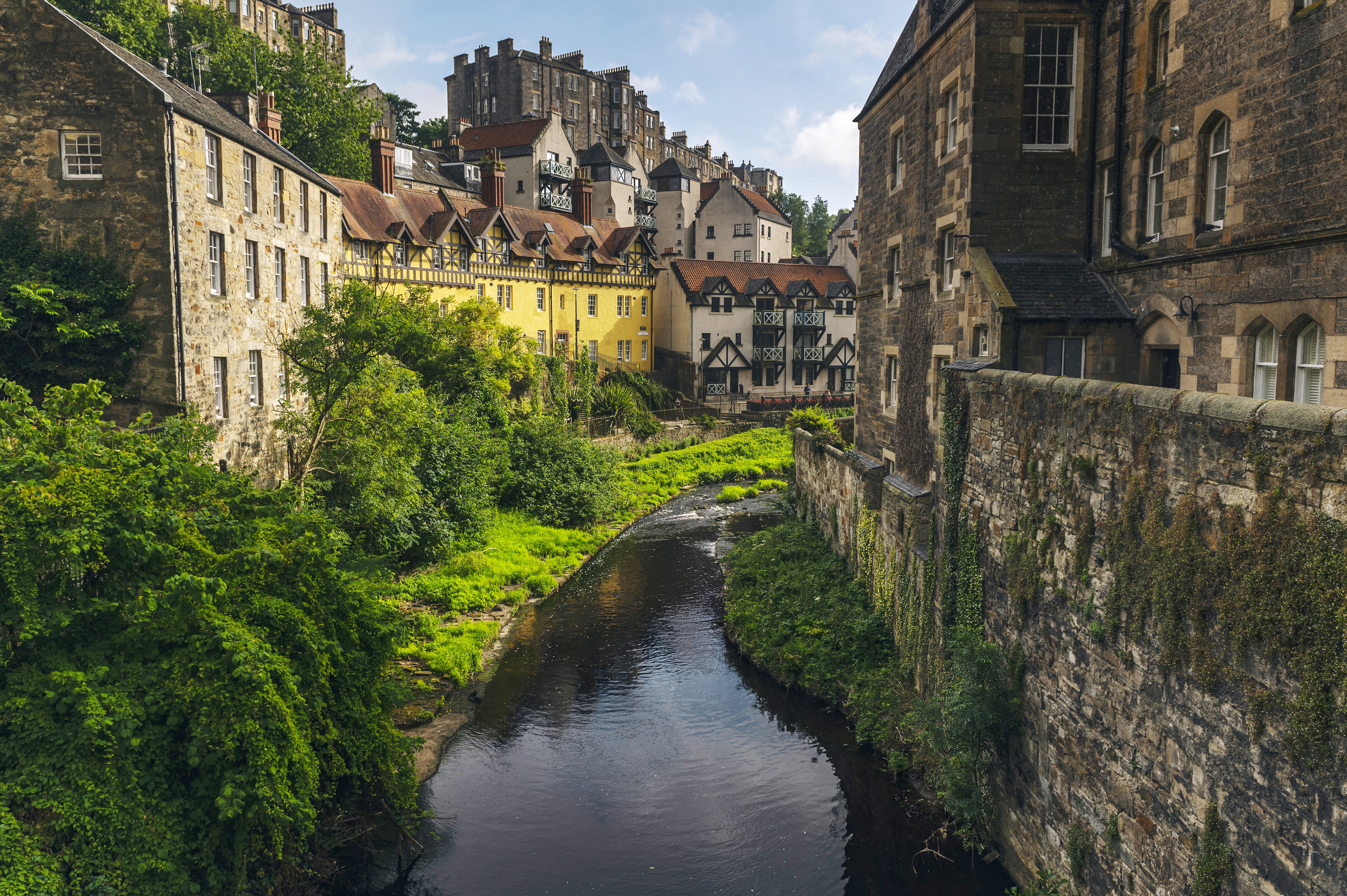 Human teeth, Scottish cities and a visit from Caesar: Country Life Quiz of the Day, April 17, 2025
Human teeth, Scottish cities and a visit from Caesar: Country Life Quiz of the Day, April 17, 2025Thursday's quiz tests your knowledge on a certain Prime Minister's last words, obscure artistic movements and royal weddings.
By Rosie Paterson
-
 The Great Gatsby, pugs and the Mitford sisters: Country Life Quiz of the Day, April 16, 2025
The Great Gatsby, pugs and the Mitford sisters: Country Life Quiz of the Day, April 16, 2025Wednesday's quiz tests your knowledge on literature, National Parks and weird body parts.
By Rosie Paterson
-
 The battle of the bridge, Balloon Dogs and flat fish: Country Life Quiz of the Day, April 15, 2025
The battle of the bridge, Balloon Dogs and flat fish: Country Life Quiz of the Day, April 15, 2025Tuesday's quiz tests your knowledge on bridges, science, space, house prices and geography.
By James Fisher
-
 Jungle temples, pet snakes and the most expensive car in the world: Country Life Quiz of the Day, April 14, 2025
Jungle temples, pet snakes and the most expensive car in the world: Country Life Quiz of the Day, April 14, 2025Mondays's quiz tests your knowledge on English kings, astronomy and fashion.
By James Fisher
-
 School dinner puddings, Scrabble tiles and Antonio Banderas: Country Life Quiz of the Day, April 11, 2025
School dinner puddings, Scrabble tiles and Antonio Banderas: Country Life Quiz of the Day, April 11, 2025Friday's quiz asks you to name one of Britain's most beautiful places, and ponders the distance of a marathon.
By Toby Keel
-
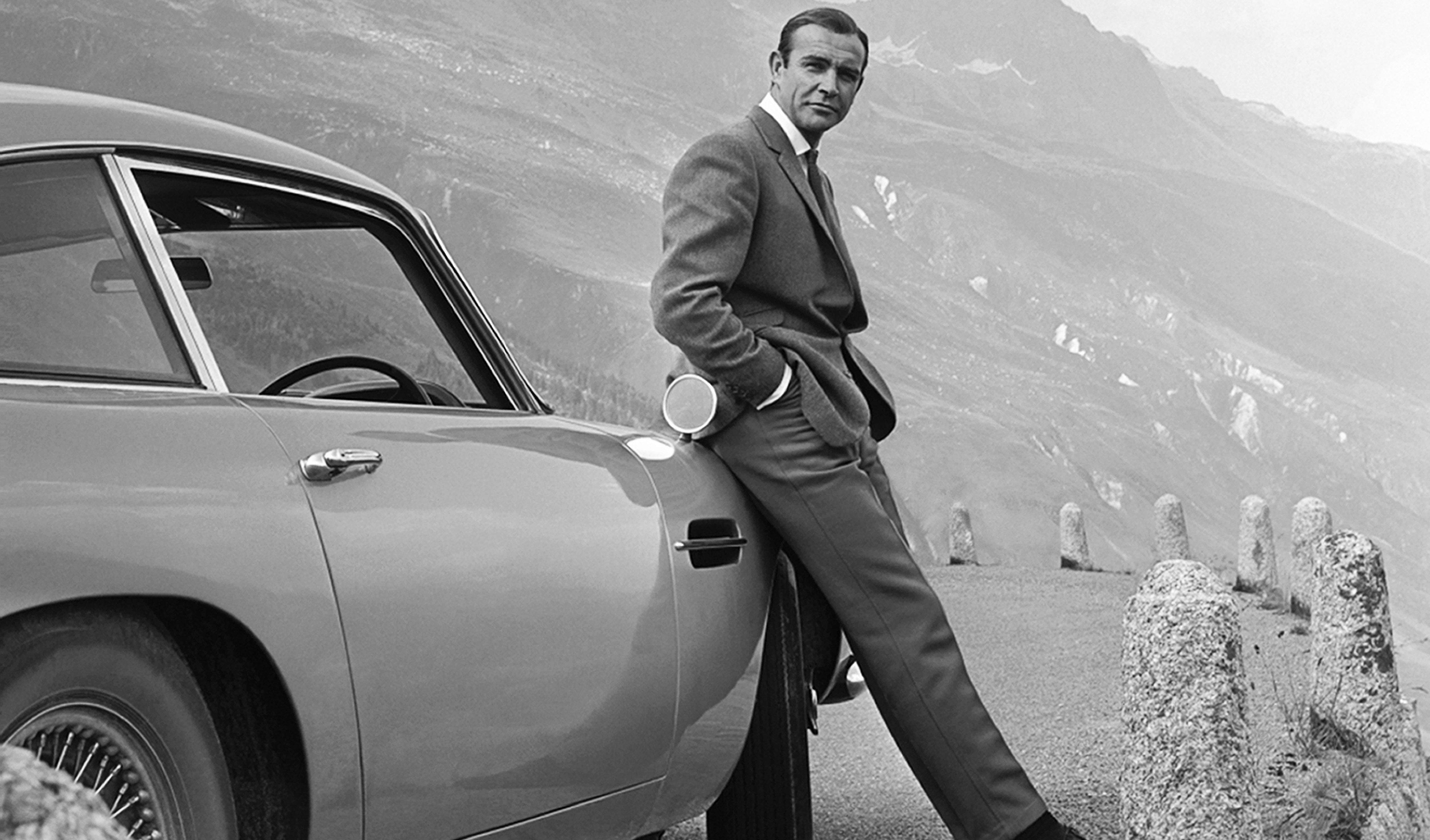 Bond's Aston Martin and Welsh rarebit: Country Life Quiz of the Day, April 10, 2025
Bond's Aston Martin and Welsh rarebit: Country Life Quiz of the Day, April 10, 2025Thursday's quiz celebrates pedestrian crossings and tests your language skills.
By Toby Keel
-
 Scary sharks, the T-Rex and fabulous city views: Country Life Quiz of the Day, April 9, 2025
Scary sharks, the T-Rex and fabulous city views: Country Life Quiz of the Day, April 9, 2025Wednesday's quiz takes in restaurants, beautiful cities and more.
By Toby Keel